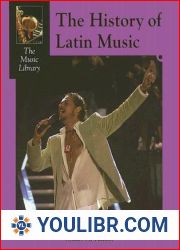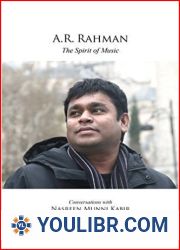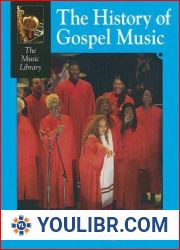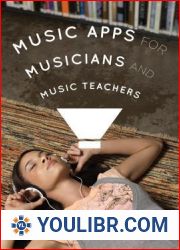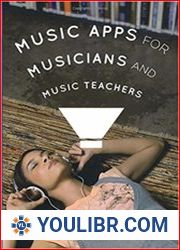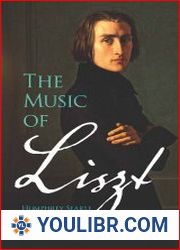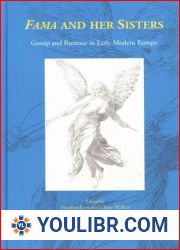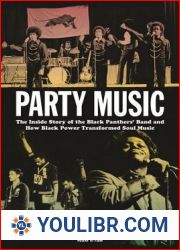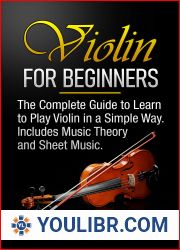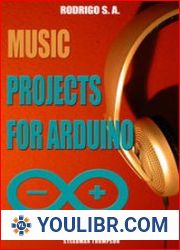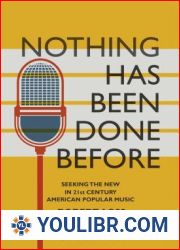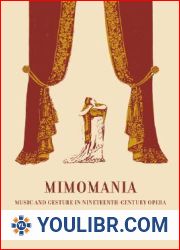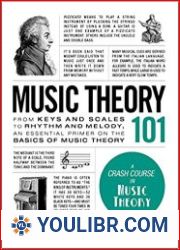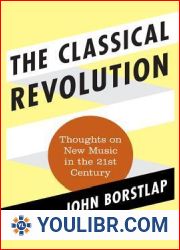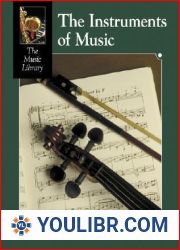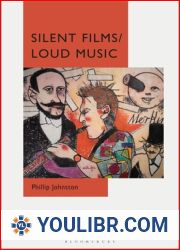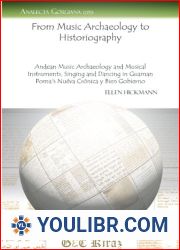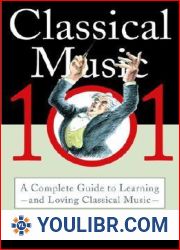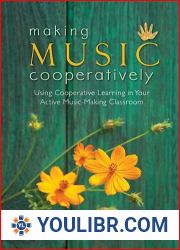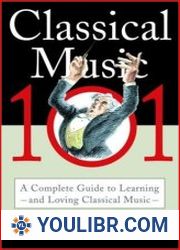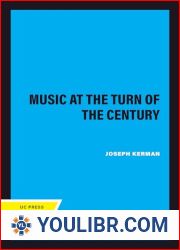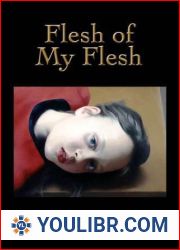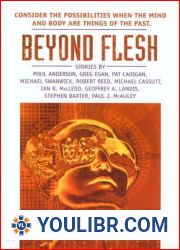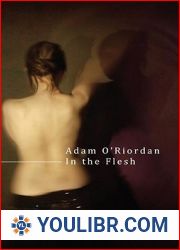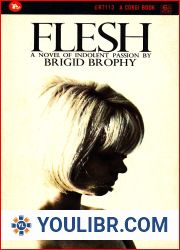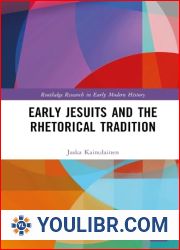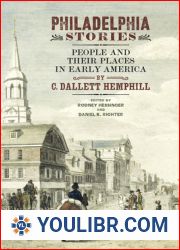
BOOKS - Music in the Flesh: An Early Modern Musical Physiology (New Material Historie...

Music in the Flesh: An Early Modern Musical Physiology (New Material Histories of Music)
Author: Bettina Varwig
Year: July 20, 2023
Format: PDF
File size: PDF 8.7 MB
Language: English

Year: July 20, 2023
Format: PDF
File size: PDF 8.7 MB
Language: English

Music in the Flesh: An Early Modern Musical Physiology In her groundbreaking work, Music in the Flesh: An Early Modern Musical Physiology, Bettina Varwig offers a comprehensive exploration of the relationship between music, the body, and the emotions in early modern Europe. Through a rich and nuanced analysis of historical testimonies, Varwig challenges the modern dichotomy between mind and body, instead demonstrating the intricate interconnectedness of body, soul, and spirit in the lived experiences of musicmaking subjects. This corporeal history of musicmaking in the long seventeenth century reveals the powerful effects of music on the human body, described as moving, ravishing, painful, dangerous, curative, and miraculous. The Book's Central Argument Varwig argues that early modern musicmaking practices offer a unique perspective on human nature, one that emphasizes the interconnectedness of body, soul, and spirit. She contends that these practices persistently affirm an integrated anthropology, where the body, soul, and spirit remain inextricably entangled. Moving seamlessly across repertories and regions, sacred and vernacular musics, and domestic and public settings, Varwig's musical physiology provides a historically illuminating and relevant account of music's role in shaping early modern modes of being-in-the-world.
Music in the Flesh: An Early Modern Musical Physiology В своей новаторской работе Music in the Flesh: An Early Modern Musical Physiology Беттина Варвиг предлагает всестороннее исследование отношений между музыкой, телом и эмоциями в ранней современной Европе. Посредством богатого и тонкого анализа исторических свидетельств, Варвиг бросает вызов современной дихотомии между разумом и телом, вместо этого демонстрируя сложную взаимосвязанность тела, души и духа в живом опыте музицирования предметов. Эта телесная история создания музыки в длинном семнадцатом веке раскрывает мощное влияние музыки на человеческое тело, описанное как движущееся, восхитительное, болезненное, опасное, лечебное и чудесное. Варвиг утверждает, что ранние современные музыкальные практики предлагают уникальный взгляд на человеческую природу, который подчеркивает взаимосвязанность тела, души и духа. Она утверждает, что эти практики постоянно подтверждают интегрированную антропологию, где тело, душа и дух остаются неразрывно связанными. Плавно перемещаясь по репертуарам и регионам, священной и народной музыке, а также в домашних и общественных условиях, музыкальная физиология Варвига предоставляет исторически освещающий и актуальный отчет о роли музыки в формировании ранних современных способов бытия в мире.
Music in the Flesh : An Early Modern Musical Physiology Dans son travail novateur Music in the Flesh : An Early Modern Musical Physiology, Bettina Varwig propose une étude complète des relations entre la musique, le corps et les émotions dans l'Europe moderne. Par une analyse riche et subtile des preuves historiques, Varwig remet en question la dichotomie moderne entre l'esprit et le corps, démontrant plutôt l'interconnexion complexe du corps, de l'âme et de l'esprit dans l'expérience vivante de la musculation des objets. Cette histoire corporelle de la création musicale dans le long XVIIe siècle révèle l'influence puissante de la musique sur le corps humain, décrite comme émouvante, délicieuse, douloureuse, dangereuse, curative et merveilleuse. Varwig affirme que les premières pratiques musicales modernes offrent une vision unique de la nature humaine, qui souligne l'interdépendance du corps, de l'âme et de l'esprit. Elle affirme que ces pratiques confirment constamment une anthropologie intégrée où le corps, l'âme et l'esprit restent inextricablement liés. En se déplaçant sans heurts à travers les répertoires et les régions, la musique sacrée et folklorique, ainsi que dans les conditions domestiques et sociales, la physiologie musicale de Varwig fournit un rapport historique et pertinent sur le rôle de la musique dans la formation des premières façons modernes d'être dans le monde.
Music in the Flesh: An Early Modern Musical Physiology En su trabajo pionero Music in the Flesh: An Early Modern Musical Physiology, Bettina Varwig ofrece un estudio exhaustivo de la relación entre por la música, el cuerpo y las emociones en los primeros tiempos de la moderna. A través de un análisis rico y sutil de la evidencia histórica, Varwig desafía la dicotomía moderna entre la mente y el cuerpo, demostrando en cambio la compleja interconexión del cuerpo, el alma y el espíritu en la experiencia vivida de musicar objetos. Esta historia corporal de hacer música en el largo siglo XVII revela la poderosa influencia de la música en el cuerpo humano, descrita como conmovedora, admirable, dolorosa, peligrosa, curativa y milagrosa. Varwig afirma que las primeras prácticas musicales modernas ofrecen una visión única de la naturaleza humana que enfatiza la interconexión del cuerpo, el alma y el espíritu. Afirma que estas prácticas confirman constantemente la antropología integrada, donde el cuerpo, el alma y el espíritu permanecen indisolublemente unidos. Moviéndose sin problemas por los repertorio y regiones, la música sagrada y folclórica, así como en entornos domésticos y sociales, la fisiología musical de Varwig proporciona un relato históricamente iluminador y relevante del papel de la música en la formación de las primeras formas contemporáneas de estar en el mundo.
Music in the Flesh: An Early Modern Musical Fisiology Em seu trabalho inovador Music in the Flesh: An Early Modern Musical Fisiology Bettina Varwig oferece uma pesquisa completa sobre as relações entre música, corpo e emoções na moderna inicial. Através de uma análise rica e fina de evidências históricas, Warwig desafia a dicotomia moderna entre a mente e o corpo, ao invés de mostrar a complexa interconexão entre corpo, alma e espírito na experiência viva de musicar objetos. Esta história corporal de fazer música no longo século XVIII. revela o poderoso impacto da música sobre o corpo humano, descrito como movimentador, admirável, doloroso, perigoso, curativo e maravilhoso. Warwig afirma que as práticas musicais modernas iniciais oferecem uma visão única da natureza humana, que enfatiza a interconexão entre corpo, alma e espírito. Ela afirma que estas práticas confirmam constantemente a antropologia integrada, onde o corpo, a alma e o espírito permanecem intrinsecamente ligados. Navegando suavemente por repertórios e regiões, música sagrada e popular e ambientes domésticos e sociais, a fisiologia musical de Varvig fornece um relatório histórico e relevante sobre o papel da música na formação das primeiras formas modernas de ser no mundo.
Music in the Flesh: An Early Modern Musical Fisiology Nel suo lavoro innovativo Music in the Flesh: An Early Modern Musical Physiology Bettina Warwig offre una ricerca completa sulle relazioni tra musica, corpo ed emozioni nella prima moderna. Attraverso una ricca e sottile analisi delle testimonianze storiche, Warwig sfida la dicotomia moderna tra mente e corpo, dimostrando invece la complessa interconnessione tra corpo, anima e spirito nell'esperienza vivente della musicazione degli oggetti. Questa storia corporea della musica nel lungo diciassettesimo secolo rivela il potente impatto della musica sul corpo umano, descritto come mosso, delizioso, doloroso, pericoloso, curativo e meraviglioso. Warwig sostiene che le prime pratiche musicali contemporanee offrono una visione unica della natura umana, che sottolinea l'interconnessione tra corpo, anima e spirito. Sostiene che queste pratiche confermano costantemente l'antropologia integrata, dove corpo, anima e spirito rimangono indissolubilmente legati. Spostandosi in modo fluido nei repertori e nelle regioni, nella musica sacra e popolare e nelle condizioni domestiche e sociali, la fisiologia musicale di Warwig fornisce un rapporto storico e aggiornato sul ruolo della musica nella formazione dei primi modi moderni di essere nel mondo.
Music in the Flesh: An Early Modern Musical Physiology In ihrem bahnbrechenden Werk Music in the Flesh: An Early Modern Musical Physiology bietet Bettina Warwig eine umfassende Auseinandersetzung mit dem Verhältnis von Musik, Körper und Emotion im frühneuzeitlichen . Durch eine reiche und subtile Analyse historischer Beweise fordert Warwig die moderne Dichotomie zwischen Geist und Körper heraus und zeigt stattdessen die komplexe Verflechtung von Körper, Seele und Geist in der lebendigen Erfahrung des Musizierens von Objekten. Diese körperliche Geschichte des Musizierens im langen siebzehnten Jahrhundert offenbart den mächtigen Einfluss der Musik auf den menschlichen Körper, beschrieben als bewegt, entzückend, schmerzhaft, gefährlich, heilend und wunderbar. Warwig argumentiert, dass die frühen modernen musikalischen Praktiken eine einzigartige cht auf die menschliche Natur bieten, die die Verbundenheit von Körper, Seele und Geist betont. e argumentiert, dass diese Praktiken ständig eine integrierte Anthropologie bestätigen, in der Körper, Seele und Geist untrennbar miteinander verbunden bleiben. Die musikalische Physiologie von Warwig bewegt sich nahtlos durch Repertoires und Regionen, heilige und volkstümliche Musik sowie in häuslichen und öffentlichen Umgebungen und liefert einen historisch aufschlussreichen und aktuellen Bericht über die Rolle der Musik bei der Gestaltung der frühen modernen bensweisen in der Welt.
Music in the Flesh: An Early Modern Musical Fizjologia W swojej pionierskiej pracy Muzyka w ciele: An Early Modern Musical Fizjologia, Bettina Varvig oferuje kompleksowe badanie relacji między muzyką, ciałem i emocjami we wczesnej nowoczesnej Europie. Dzięki bogatej i niuansowanej analizie dowodów historycznych Varvig kwestionuje współczesną dychotomię pomiędzy umysłem a ciałem, zamiast tego pokazując złożone wzajemne powiązania ciała, duszy i ducha w przeżytym doświadczeniu grania muzyki na przedmiotach. Ta cielesna historia tworzenia muzyki w długim siedemnastym wieku ujawnia potężny wpływ muzyki na ludzkie ciało, określany jako poruszający, zachwycający, bolesny, niebezpieczny, uzdrawiający i wspaniały. Varvig twierdzi, że wczesne współczesne praktyki muzyczne oferują unikalny pogląd na ludzką naturę, który podkreśla wzajemne powiązania ciała, duszy i ducha. Twierdzi, że praktyki te stale potwierdzają zintegrowaną antropologię, w której ciało, dusza i duch pozostają nierozerwalnie ze sobą powiązane. Płynne przechodzenie przez repertuary i regiony, muzykę sakralną i ludową oraz ustawienia domowe i społeczne, fizjologia muzyczna Warwig zapewnia historycznie oświetlające i istotne relacje z roli muzyki w kształtowaniu wczesnych nowoczesnych sposobów bycia na świecie.
Music in the Flesh: An Early Modern Musical Physiology in the Flesh: An Early Modern Musical Physiology, Bettina Varvig. באמצעות ניתוח עשיר ונואש של ראיות היסטוריות, וארוויג מאתגר את הדיכוטומיה המודרנית בין נפש לגוף, ובמקום זאת מדגים את הקשר המורכב בין גוף, נפש ורוח בחוויה החיה של השמעת מוזיקה על עצמים. ההיסטוריה הגשמית של עשיית המוזיקה במאה השבע עשרה הארוכה חושפת את ההשפעה החזקה של המוזיקה על גוף האדם, ורוויג טוען כי מנהגים מוזיקליים מודרניים מוקדמים מציעים השקפה ייחודית על טבע האדם המדגישה את הקשר ההדדי בין גוף, נפש ורוח. היא טוענת שהמנהגים הללו מאשרים כל הזמן אנתרופולוגיה משולבת שבה הגוף, הנשמה והרוח נשארים קשורים זה לזה. הפיזיולוגיה המוזיקלית של וורוויג מספקת תיאור היסטורי מאיר ורלוונטי של תפקידה של המוזיקה בעיצוב דרכים מודרניות מוקדמות בעולם.''
Music in the Flesh: An Early Modern Musical Physiology Öncü çalışması Music in the Flesh: An Early Modern Musical Physiology'de Bettina Varvig, erken modern Avrupa'da müzik, beden ve duygular arasındaki ilişki hakkında kapsamlı bir çalışma sunuyor. Tarihsel kanıtların zengin ve incelikli bir analiziyle Varvig, zihin ve beden arasındaki modern ikiliğe meydan okuyor, bunun yerine nesneler üzerinde müzik çalma deneyiminde beden, ruh ve ruhun karmaşık birbirine bağlılığını gösteriyor. On yedinci yüzyıldaki bu bedensel müzik yapma tarihi, müziğin insan vücudu üzerindeki hareketli, keyifli, acı verici, tehlikeli, iyileştirici ve harika olarak tanımlanan güçlü etkisini ortaya koymaktadır. Varvig, erken modern müzik uygulamalarının, beden, ruh ve ruhun birbirine bağlılığını vurgulayan benzersiz bir insan doğası görüşü sunduğunu savunuyor. Bu uygulamaların sürekli olarak beden, ruh ve ruhun ayrılmaz bir şekilde bağlantılı kaldığı entegre bir antropolojiyi doğruladığını savunuyor. Repertuarlar ve bölgeler, kutsal ve halk müziği, ev ve topluluk ortamları boyunca sorunsuz bir şekilde hareket eden Warwig'in müzik fizyolojisi, müziğin dünyada olmanın erken modern yollarını şekillendirmedeki rolünün tarihsel olarak aydınlatıcı ve ilgili bir açıklamasını sağlar.
الموسيقى في الجسد: علم وظائف الأعضاء الموسيقي الحديث المبكر في عملها الرائد الموسيقى في الجسد: علم وظائف الأعضاء الموسيقي الحديث المبكر، تقدم بيتينا فارفيج دراسة شاملة للعلاقة بين الموسيقى والجسد والعواطف في أوائل أوروبا الحديثة. من خلال تحليل غني ودقيق للأدلة التاريخية، يتحدى فارفيغ الانقسام الحديث بين العقل والجسد، وبدلاً من ذلك يوضح الترابط المعقد بين الجسد والروح والروح في التجربة الحية لتشغيل الموسيقى على الأشياء. يكشف هذا التاريخ المادي لصناعة الموسيقى في القرن السابع عشر الطويل عن التأثير القوي للموسيقى على جسم الإنسان، والذي يوصف بأنه مؤثر ومبهج ومؤلم وخطير وشفاء ورائع. يجادل فارفيغ بأن الممارسات الموسيقية الحديثة المبكرة تقدم رؤية فريدة للطبيعة البشرية تؤكد على الترابط بين الجسد والروح والروح. وتقول إن هذه الممارسات تؤكد باستمرار وجود أنثروبولوجيا متكاملة حيث يظل الجسد والروح والروح مرتبطين ارتباطًا وثيقًا. من خلال التحرك بسلاسة من خلال repertoires والمناطق، والموسيقى المقدسة والفولكلورية، والإعدادات المنزلية والمجتمعية، توفر فسيولوجيا Warwig الموسيقية وصفًا مضيئًا تاريخيًا وذو صلة بدور الموسيقى في تشكيل الطرق الحديثة المبكرة للتواجد في العالم.
육체의 음악: 초기 현대 음악 물리학 육체의 선구적인 작품 음악: 초기 현대 음악 생리학 인 Bettina Varvig는 초기 현대 유럽의 음악, 신체 및 감정 사이의 관계에 대한 포괄적 인 연구를 제공합니다. 역사적 증거에 대한 풍부하고 미묘한 분석을 통해 Varvig는 마음과 몸 사이의 현대적인 이분법에 도전하는 대신 사물에서 음악을 연주하는 살아있는 경험에서 신체, 영혼 및 정신의 복잡한 상호 연결성을 보여줍니다. 17 세기 오랜 음악 제작의이 공동 역사는 움직이고, 유쾌하고, 고통스럽고, 위험하고, 치유되고, 훌륭한 것으로 묘사 된 음악이 인체에 미치는 강력한 영향을 보여줍니다. Varvig는 초기 현대 음악 관행이 신체, 영혼 및 정신의 상호 연결성을 강조하는 인간 본성에 대한 독특한 견해를 제공한다고 주장합니다. 그녀는 이러한 관행이 몸, 영혼, 정신이 불가분의 관계를 유지하는 통합 인류학을 지속적으로 확인한다고 주장한다. 레퍼토리와 지역, 신성한 음악과 민속 음악, 가정 및 지역 사회 환경을 매끄럽게 이동하면서 Warwig의 음악 생리학은 세계에서 초기 현대 방식을 형성하는 데있어 음악의 역할에 대한 역사적으로 밝고 관련성있는 설명을 제공합니다.
音楽in the Flesh: An Early Modern Musical Physiology先駆的な作品「Music in the Flesh: An Early Modern Musical Physiology」において、ベッティナ・ヴァルヴィグは近世ヨーロッパにおける音楽、身体、感情の関係について包括的な研究を行っている。歴史的証拠の豊かでニュアンスのある分析を通して、ヴァルヴィグは心と体の間の現代的な二分法に挑戦し、代わりに身体、魂、精神の複雑な相互接続性を物体で音楽を演奏するという生きた経験の中で実証します。長い17世紀の音楽制作のこの肉体的な歴史は、人の体に音楽の強力な影響を明らかにします。Varvigは、初期の現代音楽の実践は、身体、魂、精神の相互連結性を強調する人間の性質のユニークな見方を提供すると主張している。彼女は、これらの実践は、肉体、魂、精神が密接に結びついている統合人類学を絶えず肯定していると主張している。レパートリーや地域、神聖な音楽や民俗音楽、家庭やコミュニティの設定を通してシームレスに移動し、ワーウィグの音楽生理学は、世界における初期の近代的な方法を形作るための音楽の役割の歴史的に照らし、関連する記述を提供します。
Bettina Warwig在他的開創性作品Music in the Flesh:A Early Modern Musical Physiology中提供了對早期現代歐洲音樂,身體和情感之間關系的全面研究。通過對歷史證據的豐富而精細的分析,Warwig挑戰了現代的身心二分法,反而展示了身體,靈魂和精神在記憶物體的生活經驗中的復雜相互聯系。這個長十七世紀創作音樂的身體故事揭示了音樂對人體的強大影響,被描述為運動,愉悅,痛苦,危險,治愈和奇跡。Warwig認為,早期的現代音樂實踐提供了對人性的獨特看法,強調了身體,靈魂和精神之間的相互聯系。她認為,這些做法不斷支持綜合人類學,其中身體,靈魂和精神之間保持著千絲萬縷的聯系。Warwig的音樂生理學在曲目和地區,神聖和民間音樂以及家庭和社區環境中流暢地移動,為音樂在塑造世界早期現代生活方式中的作用提供了歷史上的啟發性和相關性。







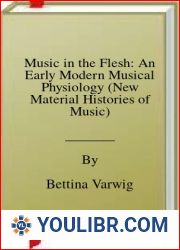
 49
49  2 TON
2 TON

